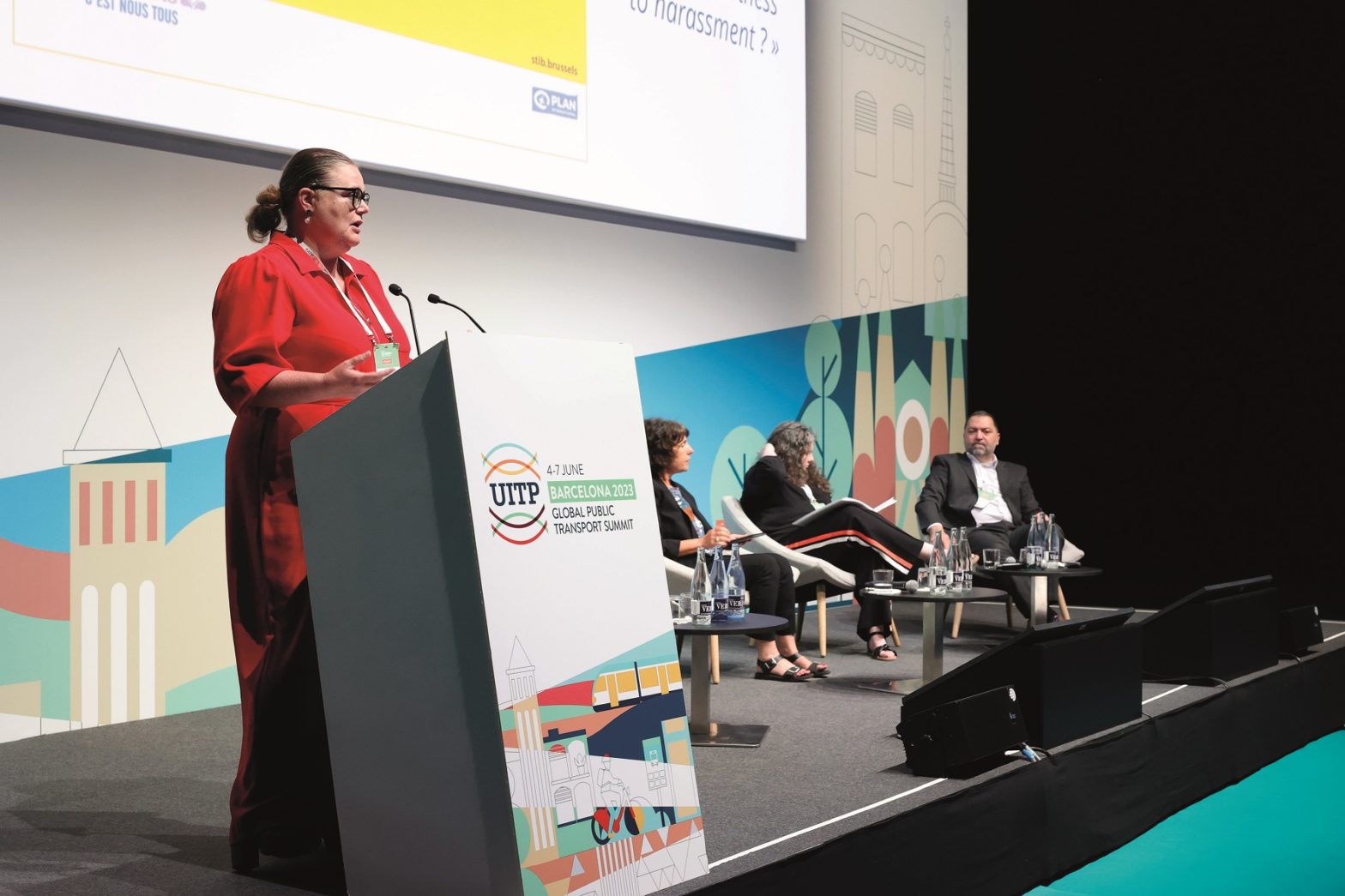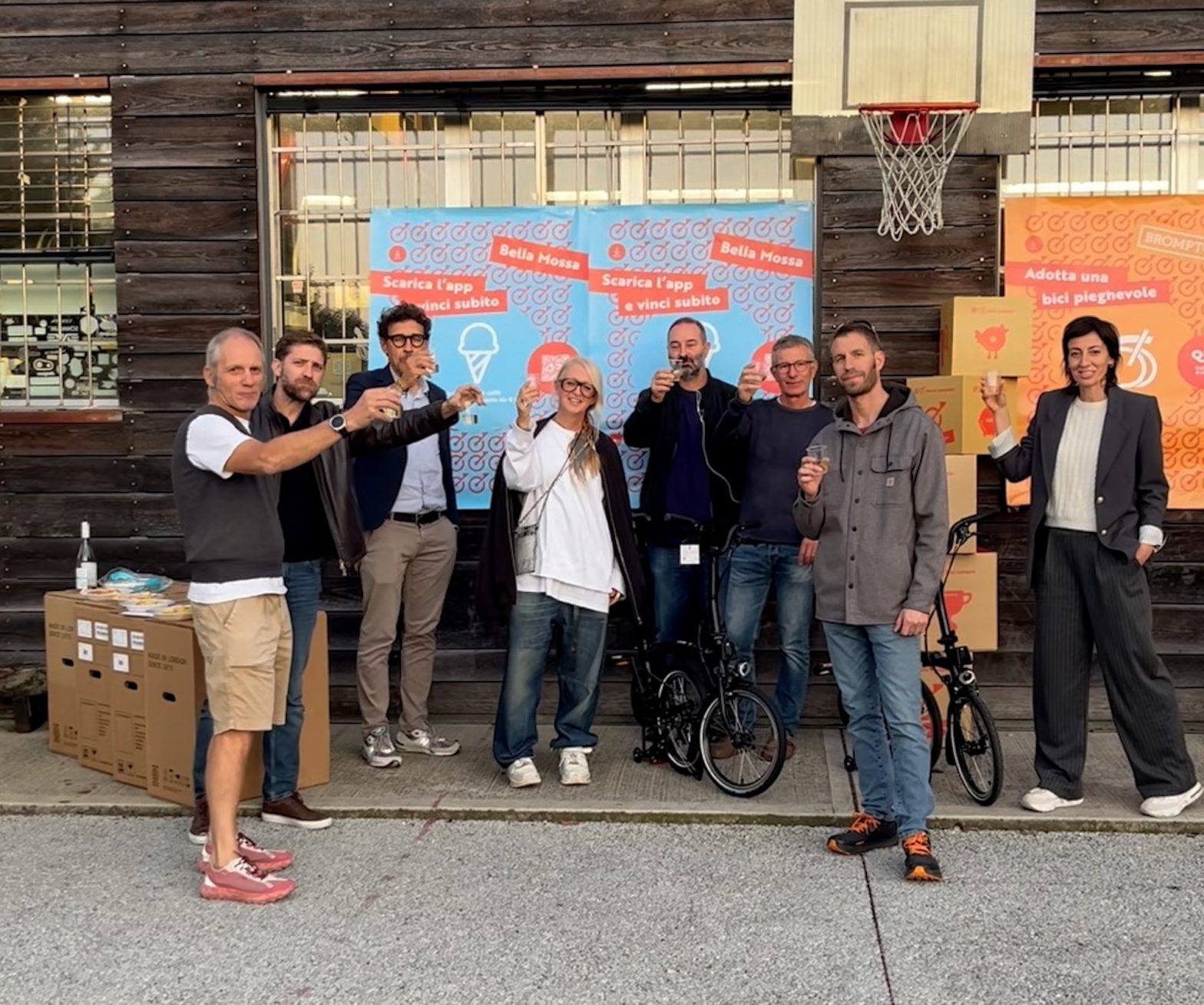
Photo: UITP
Tackling sexism on public transport starts with culture change
08 June 2023
by Folkert Leffring
During a panel session at the UITP Summit this week, transport operators revealed how they are trying to make their systems safer for women.
Özgür Soy, CEO of Metro Istanbul in Turkey, said: “Of course, we want to make transportation safe for women but in our case, we really had to change ourselves and make a transformation in the company before doing anything else.”
The two issues go “hand in hand”, he added.
Metro Istanbul is the largest urban rail operator in Turkey, serving approximately one in two rail passengers in the country and reaching nearly three million people every day.
An initial goal was to make Metro Istanbul an attractive place to work, aiming for a 50 percent female workforce eventually. The operator also wanted to encourage more women into positions traditionally deemed “inappropriate” for them, and to help women progress to senior roles.
Efforts have included major publicity campaigns and social media. A photography series under the theme of strong women at Metro Istanbul was exhibited in a major station. As a keen photographer, Soy took the pictures himself.
A second series had the theme ‘Equality is here’ and showed men and women working together doing the same job.
“We have made many communication campaigns and we are able to reach many people because we are a very visible company and we have good exposure, so we try to use that,” said Soy.
Governance initiatives include the appointment of an equality committee and ‘change pioneers’. A gender equality manifesto was published as well as a women’s employment principles document, and a gender-equality training programme has been developed. The efforts are showing results, Soy said.
In 2019, just 5.8 percent of Metro Istanbul’s workforce were women and this has now doubled to 13 percent. The number of train drivers is up from eight to 231. The proportion of female employees promoted in the company has gone from less than one percent to 21 percent, and the proportion of job applications from women increased from seven percent to 24 percent. The percentage of women in management has also increased to 14 percent from four percent.
In the last few years, the company gained its first female station supervisor and the first female technical maintenance supervisor and boosted the ratio of female engineers to 17 percent.
Building on this, Metro Istanbul is now starting to focus on campaigns targeting female passengers after a survey showed that 52 percent of women don’t feel safe on the metro.
The title of the campaign has two meanings: ‘carrying together’ and ‘overflow’. Soy said this highlights Metro Istanbul’s mission of “transporting people” while “exceeding boundaries”.
No quick fix
Internal culture is also central to STIB-MIVB, Brussels’ public transport company, in terms of promoting gender equality and rooting out sexism.
Following a campaign about sexism and harassment targeted at passengers, the organisation rolled one out for staff, particularly around harassment by colleagues.
Tamara Eelsing, Diversity Manager at STIB-MIVB, said: “Sexism is not a specific problem to our company; it’s something that’s very systemic.
“With 10,000 employees, an external problem in the environment becomes an internal problem.
“And it is also not a problem of public transport; it is a problem of public spaces. Public transport will not solve sexism in public space – we are only a link in the chain.”
STIB-MIVB used a number of tactics: targeting the ‘silent middle’ who have no strong opinion on a topic and treating this group as ‘witnesses’ and a solution to sexism rather than pointing any fingers to induce guilt.
Eelsing said the objectives were to raise awareness of sexism and reinforce the message that sexism isn’t acceptable and can have employment and legal consequences. The initiative also reminded staff of the avenues to ask for help and provided practical tools.
“Witnesses have a very important role to play in the fight against sexism and actually in any kind of diversity fight that we have,” said Eelsing. “It’s far easier for a witness to say ‘Stop’ than it is for victims.” Managers were also encouraged to intervene early.
The campaign included videos and more detailed interactive e-learning on what sexism can look like in a variety of situations and forms, and strategies to address it, using male personas as well as female.
“Men can be victims of sexism as well, and women can also be perpetrators,” Eelsing pointed out.
All videos ended with the slogan: “Talk about it.” STIB-MIVB also made credit-card sized fold outs, showing decision trees for victims, witnesses and managers.
“There’s no quick fix,” said Eelsing. “Sexism is not a one-off campaign; you have to be consistent, you have to have multiple actions on the same subject. It’s culture change.
“Your diversity manager, if you have one, or your HR team cannot do this alone: they need managers to be role models for sexism and other diversity issues.”













